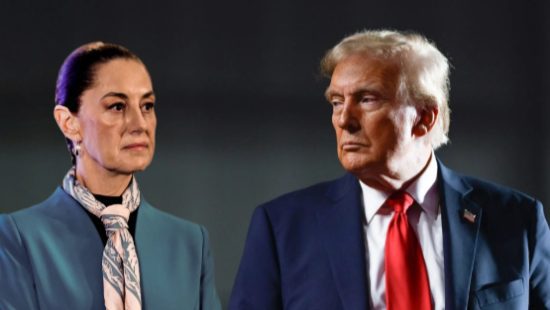The Security Cabinet reported the transfer to the United States of 26 inmates held in different prisons, who were wanted for their alleged ties to criminal organizations for drug trafficking, among other crimes.
It indicated that the U.S. Department of Justice has pledged not to seek the death penalty for the inmates in its country.
The Attorney General’s Office (FGR) and the Secretariat of Security and Citizen Protection (SSPC) reported that these individuals represented a permanent risk to public safety, and that all have extradition orders.
The agencies indicated that the custody, transfer, and formal delivery of these individuals were carried out under institutional protocols, with due respect for their fundamental rights and due process in accordance with the Constitution and the National Security Law.
They mentioned that this action is part of the bilateral coordination, cooperation, and reciprocity efforts, within the framework of respect for the sovereignty of both nations.
Tomorrow, August 13, the Security Cabinet will hold a press conference to discuss the issue.
The head of the SSPC, Omar García Harfuch, confirmed the surrender of the 26 individuals linked to criminal organizations.
“Today, the Security Cabinet, in bilateral coordination and with full respect for our sovereignty, transferred to the United States 26 individuals linked to criminal organizations who posed a risk to the security of Mexico.
“The action was carried out in strict compliance with the National Security Law and at the request of the Department of Justice, which pledged not to seek the death penalty. Tomorrow, more details at a press conference from the SSPC.”
Cartel leaders and other prominent figures were being flown from Mexico to the United States on Tuesday, according to a statement from a person who spoke on condition of anonymity because they were not authorized to discuss the ongoing operation.
Among those detained are Kevin Gil Acosta and Martín Zazueta Pérez, linked to Los Chapitos; Leobardo García Corrales, a trafficker for the Sinaloa Cartel; and Juan Carlos Félix Gastélum, an operator of the Los Mayos faction of the Sinaloa Cartel.
Who is “El Cuini”?
Abigael González Valencia, alias El Cuini, is the most prominent name among the 26 Mexican prisoners handed over by Claudia Sheinbaum’s administration to Washington, according to Mexican and U.S. sources confirmed to MILENIO.
González Valencia is identified as the absolute leader of Los Cuinis, the criminal network that trafficked tons of drugs. cocaine and methamphetamine to the United States and Europe, and at the same time, financed the growth of the Jalisco New Generation Cartel, the allied criminal organization.
“El Cachetón,” another of his nicknames within the criminal world, will be presented in federal court in Washington, where the indictment against him was filed in 2014, in a case led by the Drug Enforcement Administration (DEA) division in Los Angeles, California.
“El Cuini” is accused in the same criminal case as his brother-in-law, Nemesio Oseguera Cervantes, alias “El Mencho,” the absolute leader of the Jalisco New Generation Cartel. Both face two charges: organized crime and cocaine and methamphetamine trafficking, at least between the year 2000 and the present.
“The CJNG and Los Cuinis are responsible for transporting tons of cocaine from Colombia and other South American countries to Mexico. The CJNG and Los Cuinis facilitated the transportation of cocaine to the United States and other destinations.
“In addition, the CJNG and Los Cuinis are responsible for the distribution of several kilos of methamphetamine to the United States and other destinations. The CJNG and Los Cuinis also facilitated the collection, transportation, and delivery of drug trafficking proceeds from the United States to Mexico,” the indictment details.
González Valencia was arrested by Mexican authorities in 2015 in Puerto Vallarta, Jalisco, and has since legally fought his extradition to the United States.
Investigations in the United States, led by the anti-drug squad and the Department of the Treasury, indicate that Los Cuinis, who enriched themselves by trafficking tons of cocaine to Europe, also financed the growth of the Jalisco Cartel, allowing its expansion throughout Mexico and other countries.
Millions of dollars and pesos have been introduced into the Mexican financial system through complex investment schemes in real estate and companies, primarily located in the state of Jalisco, derived from cocaine trafficking.








